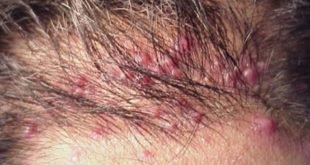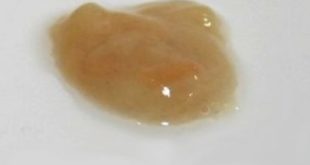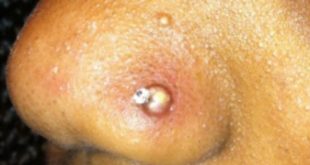White bumps can appear anywhere on your tongue. The bumps could appear underneath the tongue, on sides of tongue or on tip of tongue. The bumps are in most cases painful and hurt a lot. Here are the possible causes and how to treat and get rid of white bumps on tongue.
White bumps or spots on tongue could be a sign of a serious underlying health condition. The bumps could otherwise be harmless and appear due to poor oral health or unhealthy lifestyle such as smoking. If you notice the bumps appear for more than a week, you need to have them checked out by a professional dentist. Early diagnosis is recurred for effective treatment.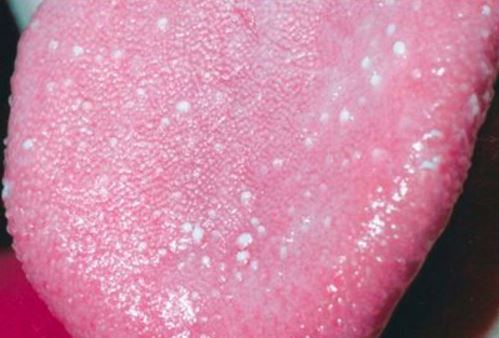
What causes a white bump on tongue?
Contents
White bumps appearing on your tongue can be caused by an array of conditions. Some conditions are harmless and can clear on their own whereas others are serious and require immediate medical attention. In a nutshell, these bumps can be caused by dead cells accumulating on tongue, excessive mucus, bacteria and fungi that are found inside your mouth.
Other causes of the bumps and white patches appearing on the tongue can be caused by the following oral conditions:
1) STDs
White bumps on the tongue can be a symptom of a sexually transmitted disease STD. HIV a sexually transmitted infection can cause white patches to appear on tongue, mouth or in the throat. When the patches are accompanied by other symptoms such as a dry cough, rapid weight loss of fatigue, you will need to be tested for the virus.
Syphilis a chronic bacterial disease contracted chiefly by infection during a sexual intercourse is another common cause of white bumps on the tongue. Apart from intercourse, syphilis can be infected congenitally by infection of a developing fetus. Urgent medical attention recurs. Penicillin is one of the widely used antibiotic effective in treating syphilis. This allergic to this medicine can be treated using doxycycline or ceftriaxone.
2) Canker sores
Cancer sore is the other possible cause of white spots, patches, and bumps on the tongue. These common and recurring lesions can be small or large. The sore may appear on its own or in a group. They are often painful and cannot be removed by scrapping them.
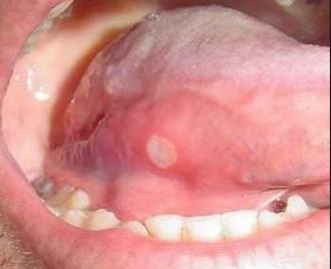
The cause of these sores ca be viruses, bacteria and immune system issues. Other causes will include: traumas and injury on mouth and tongue, allergies to food and drugs, chewing or smoking tobacco, iron and vitamin deficiency. All these reasons make one susceptible to canker sores.
3) Swollen taste buds
The little white or red bumps appearing on the tongue could mean you have swollen taste bud. Taste buds refer to any of the clusters or bulbous nerve ending on the tongue and in the lining of the mouth that provide the sense of taste.
For a healthy tongue, it should be pink and painless. The tongue is covered in numerous taste buds also known as papilla. The buds will become inflamed and irritated which causes pain, they can be red or white and tender in most cases.
4) Oral thrush (candida)
On tongue or inside the mouth, oral thrush is caused by the overgrowth of naturally occurring fungus. This is common when the immune system is depressed. A weakened immune system in babies, a patient with cancer or HIV or people with any other condition that suppress the immune system makes them more likely to develop oral thrush.
Scraping the bumps usually removes the white coating, this can this can, however, cause slight bleeding. Oral thrush will be accompanied by symptoms such as the following:
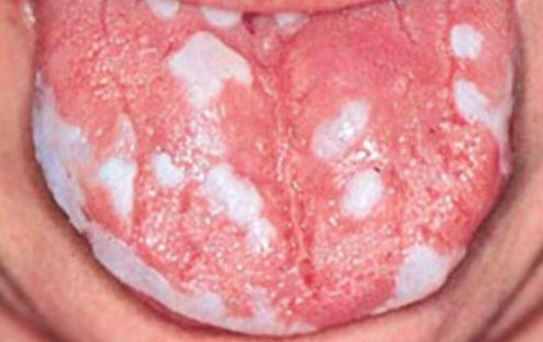
- Creamy lesions
- Dry mouth
- Loss of taste
- Cracked corners of mouth and lips
- White patches in area of the mouth
5) Smoking and alcohol
Excessive use of tobacco products and drinking a lot of alcohol also makes one more likely to developing white bumps and spots on the tongue or inside the mouth. Avoiding the two and maintaining a high standard of hygiene will help prevent the bumps from forming.
6) Strep throat
This is a bacterial infection that causes inflammation and pain in the throat. The condition is common in both children and adults. It is contiguous and very infectious, sneezing and coughing can spread the infection from one person to the other.
Though it is a throat infection, strep throat can cause symptoms such as red sore with white patches, this will appear inside the throat, along with the mucous lining of the mouth and on lips and tongue. The condition is also known to cause:
- Swollen lymph nodes,
- Fever
- Severe headache
- Difficulties in swallowing
7) Oral Lichen planus
Lichen planus is an inflammatory skin condition characterized by an itchy non-infectious rash of small, polygonal lesions. The white patches may not cause discomfort when they appear on the inside of the cheek. Some of the reasons accompanying the swollen patches may include the following:
- Burning sensation
- Discomfort and pain when speaking, chewing or swallowing
- Inflammation of the gums
- Bleeding and irritation of the tongue
8) Cold sores
Also referred to as fever blisters, this is common viral infection. They also appear around the lips and often appear in groups. They are contagious and can spread from one person to the other through close physical contact.
There is no cure for the sore, an antiviral medication will, however, help the sores to heal quickly and reduce how often the sores return.
9) Leukoplakia
Leukoplakia is a white patch that develops in the mouth. The patches are often painless but are closely linked to an increased risk of mouth cancer. The patches cannot be removed by rubbing. In most cases, the patches will occur on the tongue but can also develop on the floor of mouth, palate, lower lips and on gums.
The cause of leukoplakia is unknown, however, tobacco smoking or chewing and heavy drinking are some of the factors believed to increase the risk of developing this bumps on the tongue.
Occurrence of small white bumps on tongue and meanings
As mentioned earlier, white bumps can appear anywhere on your tongue. The occurrence of small white bumps on the tongue will, however, depend on the underlying cause and the extent of spread of the infection. It is possible to simply rule them out as tongue pimples.
Regardless of where the bumps occur on tongue, the bumps can be itchy, irritation, painful and could cause color change on the side or position of the tongue they appear. The white bumps can also be lie bumps. This are small, little red or white bumps that appear on tongue. These bumps form due to stress, hormonal changes or due to allergic reaction to particular foods.
The medical term for these kind of bumps is transient lingual papillitis. Over times, people have used different myth to try and explain the occurrence of lie bumps. A common such myths is that, the bumps develop when you tell lies. The meaning and interpretation will however vary depending on geographical location.
The bumps occurring on the tongue can also be accompanied by other symptoms. Though the symptoms might vary depending on what the underlying cause are, the common symptoms you are likely to observe together with the white patches or bumps will include the following: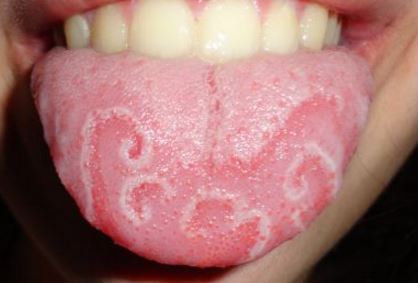
- Hairy appearance on tongue
- Swollen tongue especially for children and older people
- Painful red or white patches
- The tongue may change in color, these changes occur due to nutrient and mineral deficiency
- It is possible to experience pain either all over your tongue or on different spots
- Burning sensation, this is common in women who are postmenopausal, the same is also felt due to exposure to irritants such as cigarette
- Irritation
- Itching
- It is also possible to experience difficulties in moving or rolling your tongue.
- Complete or partial loss of taste
- The following are common sites on the tongue where the small white bumps are most likely to appear on.
White bump on back of tongue
You might notice that even when healthy, you can see some white bumps on the back of your tongue. This is not the bumps we are not the bumps we are referring to here. The size of these bumps may vary from person to person.
These bumps are said to be natural. Eating spicy foods, too much salt or acidic foods and drink may irritate the bumps on back of tongue making them appear bigger or enlarged. An infection causing inflammation can be caused by the accumulation of food debris, bacteria and other particles when you fail to maintain good standards of oral hygiene.
Apart from oral hygiene, STDs can also cause the development of sores and bumps on the back of your tongue. Allergic reaction to food, drinks, and drugs can also lead to these symptoms. Other condition like leukoplakia, (a mucous membrane disorder characterized by white patches, on cheek and tongue) can also cause the bumps to appear.
White bumps under tongue
The other common site for the occurrence of the white bumps is underneath the tongue. just like those occurring on back of tongue, these lumps can be caused by an allergic reaction to foods, drinks and drugs, poor oral hygiene and other condition such as oral leukoplakia. Underneath the tongue however, the common and possible cause of the bumps will include: oral thrush, canker sores and cold sores.
Oral thrush also called oral candidiasis, it is a condition in which the fungus Candida albicans accumulates on the lining of your mouth. The condition is known to cause creamy white lesions usually on tongue and inner cheeks. The fungus is common and occur naturally inside mouth, the symptoms however become visible once it overgrows. This can be due to poor oral hygiene.
Oral thrush can affect anyone, the condition is however common in babies, the elderly and those with compromised immune systems. It is also possible in people with other health condition r those who take certain medications. According to WebMD, oral thrush is a minor problem when you are healthy. However, for those with weakened immune system, some of the symptoms may be more severe and at times difficult to manage and control.
Canker sores underneath the tongue. Also called aphthous ulcers, these are small, shallow lesions that develop on the soft tissues in your mouth or at the base of your gum [mayo clinic]. The difference between canker sores and cold sores is that, unlike cold sores, canker sores don’t occur on the surface of your lips. The sores are also not contiguous.
These bumps can be painful when occurring underneath the tongue and can make eating and talk very difficult. The good thing with the bumps is that most go away on their own. This can happen within a week or treatment or some weeks without treatment.
The other possible cause of white bumps under tongue is cold sores. Cold sores can be defined as inflamed blisters in or near your mouth. Cold sores are caused by infection with the herpes simplex virus. That explains why the bumps are also referred to as fever blisters. The bumps are tiny fluid-filled blisters that commonly appear on and around the lip.
Cold sores are contagious, they spread from person to person by close contact. Another form of these virus affects the genital area. One can be infected with this any of the virus by engaging in oral sex. Currently, there is no cure for herpes simplex virus. Antiviral medication can help the cold sores heal faster, the bad thing is that, the bumps are more likely to recur.
Little white spots on tip of tongue
Just as those appearing underneath the tongue, little white spots on tip of tongue can be painful. This makes it hard to eat or talk especially when occurring in children. It is possible to notice the white spots on tip of tongue after experiencing discomfort or when checking inside your mouth after brushing your teeth.
White spot on tip of tongue will go away on they own without treatment, but this is not a reason for you not to visit a dentist. Depending on the symptoms exhibited, the sores are likely to be caused by cold sores, canker sore or leukoplakia.
Leukoplakia are white or grayish patches that most likely appear on gums, the bottom of the mouth or the inside of cheeks. The patches or the white spots also appear on tongue. The most common cause of leukoplakia is eating or smoking tobacco. Drinking alcohol also increases the chances of developing these bumps. According to the , 75% of smokeless tobacco users develop leukoplakia. Those with oral cancer are also at the risk of developing the patches.
Small bumps on side of tongue
For small bumps appearing on sides of the tongue and last for more than a week or ten days, you need to have them checked out by your dentist as soon as possible. Even though some of the causes of these bumps might go away on their own without treatment, it is also important to have them checked out to make sure that the condition causing the small bumps is not serious or contagious.
Small bumps on side of tongue are more likely to be caused by oral thrush, cold sores, canker sores or leukoplakia. This condition as mentioned can be painful making eating or talking hard. The bumps might also cause other symptoms such as itching, inflammation of the tongue or a feeling of burning sensation.
Most professional dentist will recommend that, to help keep your mouth fresh and healthy to reduce the risk of white spots and oral problems, you need to make sure you brush twice a day or after meals with a fluoride toothpaste. Even though most of the bumps or spots are harmless, they could be a sign of something more serious.
How to get rid of bumps on tongue.
Bumps on the tongue will in most cases be accompanied by other symptoms such as pain, burning sensation, tingling, tenderness, and inflammation. With this kind of discomfort, most people with the bumps appearing on the tongue will find it difficult to eat, drink or talk.
Getting rid of the bumps first involves getting rid of the underlying cause of the bumps. This means you will first need to have a dentist or a professional health care provider near you check the bumps out before you can now attempt to get rid of them. Treatment for this bumps will in most cases involve the use of topical oral gels or ointments. This medicines will help get rid of symptoms such as itching, irritation, and pain.
When the underlying cause of the bump is a bacterial infection, then an antiseptic mouthwash is recommended. Rinsing your mouth with a lukewarm saline solution also offers the same relief for the symptoms. Natural yogurt is said to be highly effective in reducing oral thrush.
Getting rid of the bumps will also involve maintaining healthy eating habits. Instead of having infrequent heavy meals, you can choose to have small meals at regular intervals. Keep away from foods your digestive system is allergic to. This is because, bumps on tongue can might also appear due to digestive disorders, like chronic gastritis or irritable bowel syndrome.
To prevent this bumps from happening, you need to maintain high standards of oral hygiene. Oral hygiene plays a big role in causing a number of mouth and tongue related issues. Keeping your mouth clean and fresh is thus important to get rid of the bumps on tongue. Avoid smoking as use of tobacco products increases your chances of developing these bumps.
At home, you can reduce the pain, itching or irritation caused by the bumps by applying aloe Vera gel or rinsing with a lukewarm saline solution. Aloe Vera gel is a natural antibiotic, antiseptic and anti-inflammatory agent. Fresh aloe Vera gel is also rich in antiseptic properties and can also get rid of itching on your tongue.
To use aloe Vera,
- Cut a fresh aloe Vera leave and wash to clean it
- Cut in lengthwise and squeeze the gel in a cup
- Using clean fingers or a cotton swab gently apply the gel on your tongue
- For children, instead of applying only aloe Vera, add a tablespoon of raw honey
- Leave the best on for 10-20 minutes the rinse your mouth with a saline solution
- Repeat this daily for a week
References
- Common tongue problems:
- Tongue problems basic:
- White spots on tongue:
- White bumps on tongue treatment:
